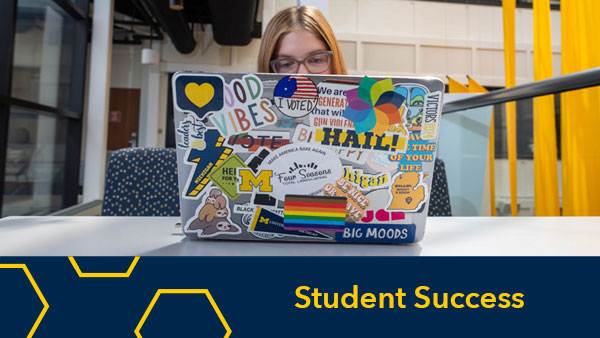Sean Corp, Content Strategist
What started as a goal to get 1,000 people around the world to take his online course has blossomed into one of the most successful massive open online courses in the world with more than 1.5 million enrolled on all platforms as well as recently crossing 1 million on Coursera alone.

It turns out a lot of people want to improve their negotiating skills, and they are turning to George Siedel’s Successful Negotiation: Essential Strategies and Skills to do it. Siedel is the Williamson Family Professor of Business Administration Emeritus and the Thurnau Professor of Business Law Emeritus at the University of Michigan.
In addition to being the creator of the massively popular Successful Negotiations course, he has won many teaching awards and authored numerous books and articles. His latest book “Seven Essentials for Business Success: Lessons from Legendary Professors” taps the insight of seven celebrated professors to talk about leadership, teaching and how to be successful in business.
Professor Siedel recently sat down and answered a few questions about his experiences as an author, educator and the success of his “Successful Negotiations” course.
What originally motivated you to want to create the online course “Successful Negotiation: Essential Strategies and Skills”?
A business executive in my annual negotiation course in Italy put it this way: “Life is negotiation.” People with solid negotiation skills are able to achieve success in business and satisfaction in their personal lives. Over the years, degree students on campus and business leaders worldwide have used my negotiation course to improve their negotiation skills. I wanted to make this learning opportunity available to a larger number of learners and decided that creating the online course was the best way to do so.
Building an online course is a different experience than creating a traditional course. What do you remember most about the process of building an online course?
My main challenge in developing the online course was to include a residential-type experience for thousands of students located around the world. The course accomplishes this by enabling learners to complete a negotiation exercise with a person of their choice from a different country. After completing the negotiation, learners receive feedback on what they do well and how they can improve their negotiation skills. Learners have also created their own discussion groups with hundreds of others worldwide through platforms like LinkedIn and WhatsApp.
The course has proven to be one of the most popular courses available, with more than 1 million enrollees on Coursera alone. What were your original expectations when you first created the course and what has the reaction been like from learners who have reached out to you?
Before developing the online course, a couple of hundred degree students and business leaders took my residential negotiation course each year. I wondered whether as many as 1,000 learners might enroll in the online course. At this writing, the number of those enrolled on all platforms approaches 1.5 million, including over 1.1 million at Coursera. The course is the only business course listed among the top 10 worldwide in enrollment.
I have especially enjoyed receiving feedback from the learners about the course’s positive impact on their business careers and personal lives. I recently received a message from someone who doubled his annual salary when using the negotiation strategies for the first time. CEOs have told me that the course has saved them millions of dollars. Other learners have used the learning to negotiate difficult personal relationships. Still others have referred to the course as a life-changing experience.
You have also recently published a book featuring insights from prominent professors throughout the U.S. What was a common theme that you noticed when speaking with them? Was there a particular insight or comment that has stuck with you most?
In my book “Seven Essentials for Business Success: Lessons from Legendary Professors,” a common theme is that the strategies and skills used by legendary professors are also important to business leaders when developing their employees. Gretchen Spreitzer from Michigan’s Ross School of Business mentioned a quote from Steve Jobs that characterizes great professors and successful leaders. He stated that “our time is limited, so don’t waste it living someone else’s life. Don’t let the noise of others’ opinions drown out your own inner voice. And most importantly, have the courage to follow your heart.”
You recently published an article highlighting the importance of authenticity and purpose in business professors, and the desire to positively impact society among business leaders today. How do you see that manifesting itself in workplaces of today, and how will that impact the future of work?
The article you mention includes many examples of the authenticity achieved by the legendary professors profiled in my book. This authenticity is based on a sense of purpose that benefits future leaders, organizations and society. Professor Spreitzer’s authenticity, for example, is derived in part from her work in a new research field called “Positive Organizational Scholarship.” This research focuses on how leaders can create positive work environments that enable employees to achieve success in the workplace. In her innovative course on “The Art and Science of Designing Your Life to Thrive in the New World of Work,” which is described in the book, she provides many examples of how individuals can succeed in the constantly-changing work environment.


